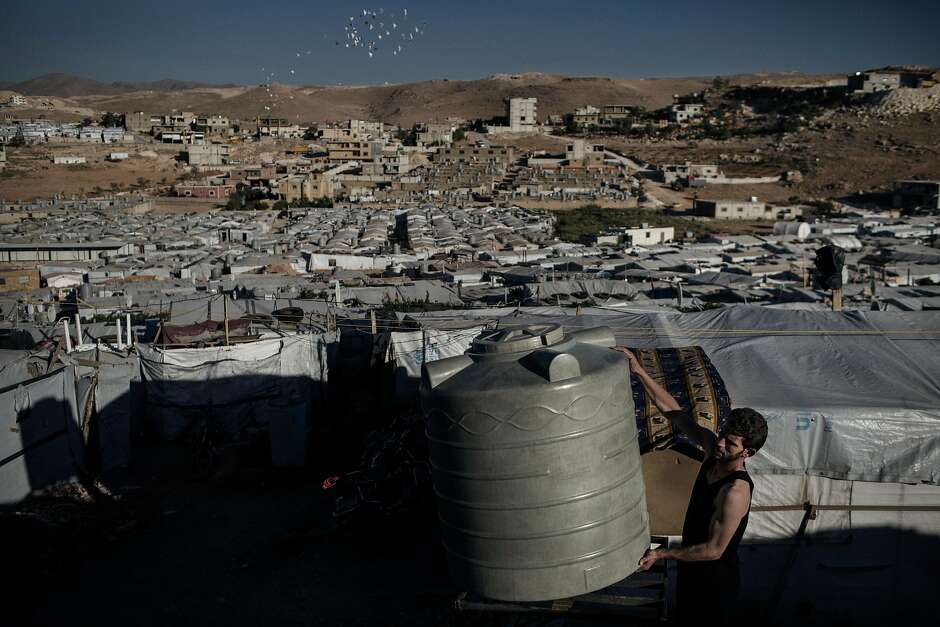
by Vivian Yee is a New York Times writer — ARSAL, Lebanon — The mayor was tired. Asleep-at-3, awake-at-6 tired. Tired the way you cannot help but be after years of the Islamic State group squatting in your town, killing your citizens and forcing the army to quarantine you from the rest of the country. Tired of Syrian refugees from just across the border growing so numerous that they eclipse your actual constituents — and of your constituents growing so sick of the refugees that they mutter about taking the town back by force. All this fell to the mayor of Arsal, Lebanon: checkpoints to negotiate, refugees to manage, townspeople to appease. And now even his wife complained that he was neglecting her. “At night, I go back home and I listen to people’s problems again,” said Mayor Bassil Hujeiri. “It’s not like my shift ends and I get to close the door.”
And yet the mayor has recently had cause to believe that the arc of his town’s ordeal was at last bending toward a little less misery — if only for the Arsalis. The refugees, for their part, were still living a nightmare. Seven years of war in Syria has displaced more than half the country’s population, leaving millions of refugees shipwrecked between the wasteland of home and the void of exile. Among the many Lebanese and Jordanian towns that received them was Arsal, where rented rooms and tent cities overflowed at one point with 120,000 Syrians — quadruple its Lebanese population. But with the Syrian government closing in on victory, President Bashar Assad declaring the country safe for Syrians again and their reluctant Lebanese hosts pressing them to leave, the Syrian refugees are now beginning to set out on the fraught road home.
Over the past month, convoys carrying nearly 2,000 Syrians have crossed the border, returning families to the homes they had abandoned years ago — though few knew whether those homes had survived the bombs and shells. But many may be stuck in Lebanon. Thousands of Syrians in Arsal have applied to return, only to be rejected by Assad’s government. Many more say they believe that if Assad remains in power, the outcome tacitly accepted by the global powers haggling over Syria’s future, they have only arrest, torture, death or forced conscription to return to. “Here, I’m a refugee,” said a former Syrian soldier who asked to be identified by his nom de guerre, Abu Fares. “In Syria, I’m a traitor.”
Few of the refugees leaving Arsal knew for certain that they would be safe at home. All had decided that home was nevertheless preferable to a tent with no future. “My life there would be better than it is now,” Mohsin Ishac, a former taxi driver from Fleita, a village just across the border, said before he left with the first convoy. “I have a tent here. I’ll put a tent there if I have to.” Lebanon has taken in so many Syrians — more than a million — that they now make up a quarter of the country’s population. But the welcome has not always been gracious. Much like populists across Europe and the United States fulminating against immigrants, Lebanese politicians blame Syrians for dragging down wages, dialing up crime and overtaxing infrastructure. Across the country, Syrian refugees have been evicted, deported, beaten and even killed by Lebanese. Vivian Yee is a New York Times writer



